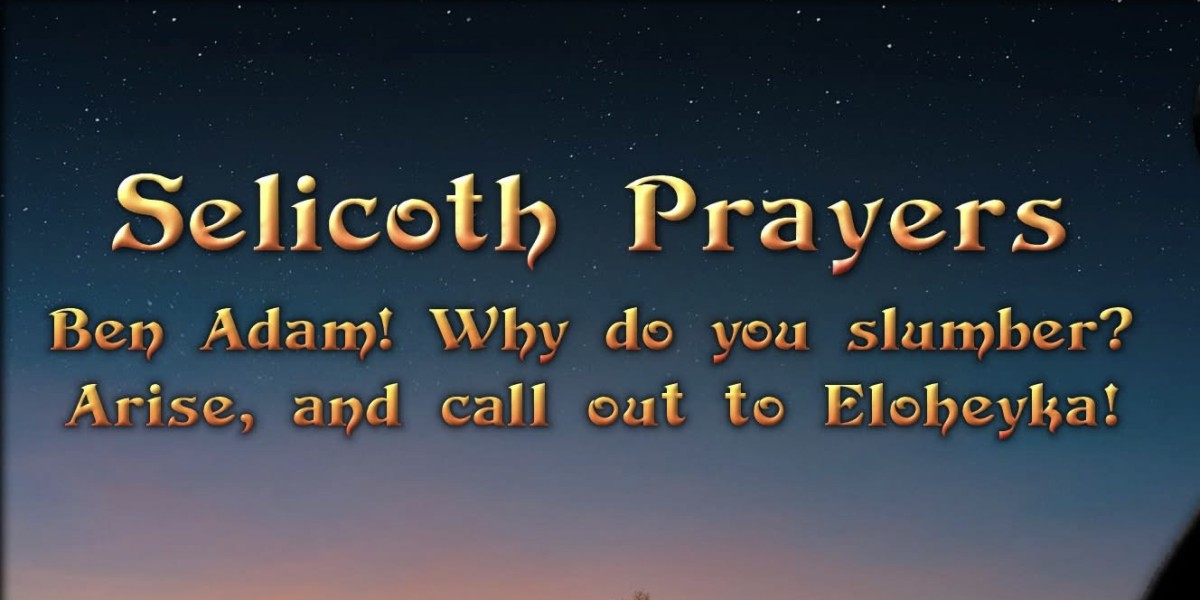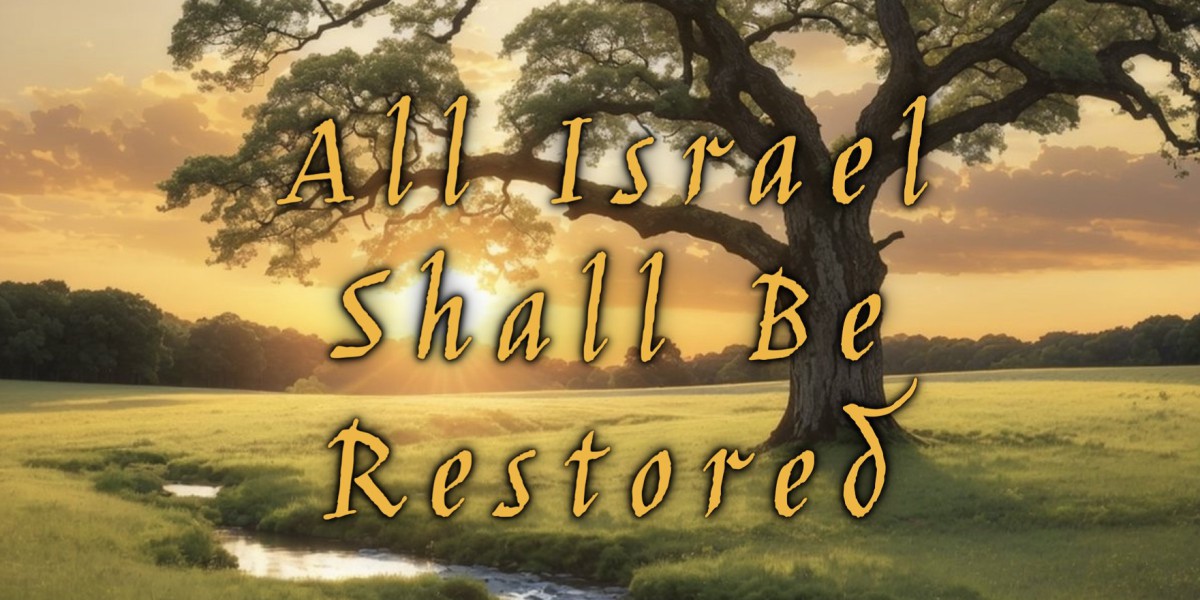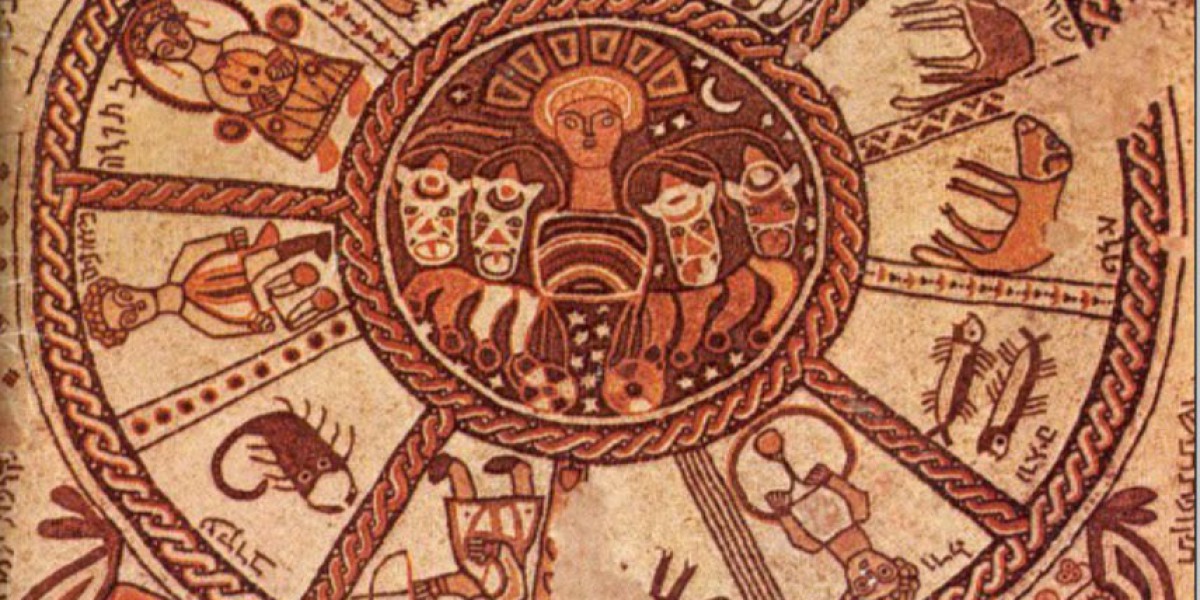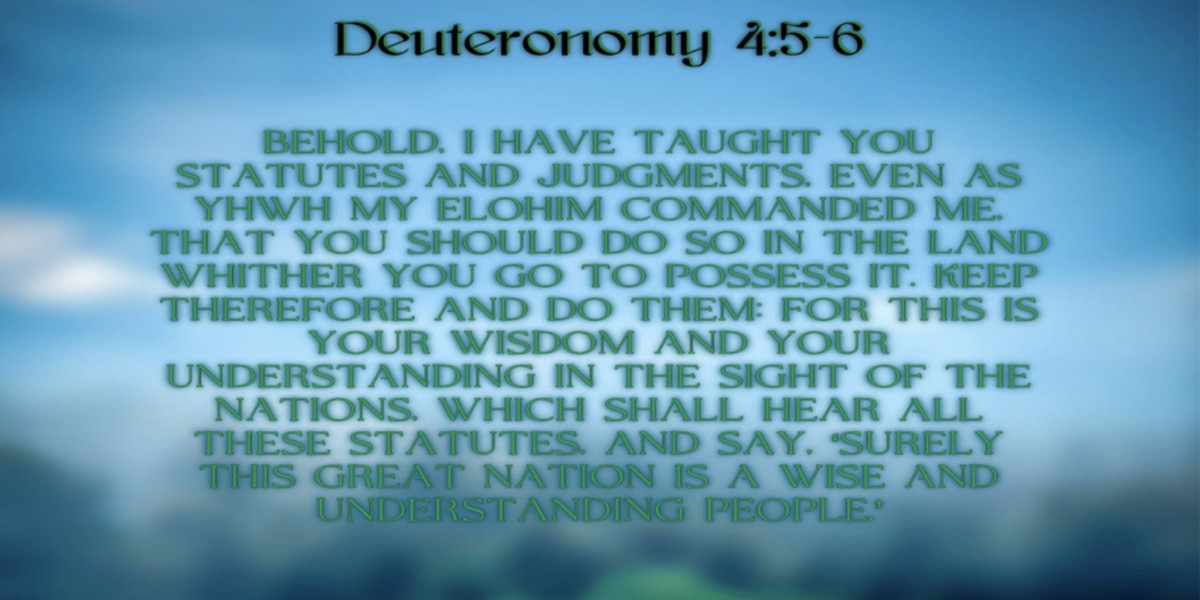Once again we are in the midst of the yearly festivals of YHWH and the month of Elul draws near. As some of you know, and many do not, that is the time for Selicoth prayers. In order to remind and inform you, our brothers and sisters in faith of the importance and need for these prayers, we have assembled this short article along with a story or two for your edification. If, after you have read them, you are prodded by the Ruach Haqodesh to join us and the people of Yisrael in prayers for forgiveness, individually and as a nation this year, you may request our small prayer booklet, "The Complete Believer's Selicoth Prayers," then join us each day from the first of Elul until the eve of Yom Hakippurym as we seek the favor of our Creator and Judge, YHWH Tzavaoth.
First, let us have a bit of background for the setting in which we perform Selicoth prayers. There is scriptural precedent for Selicoth prayer. It was during the month of Elul that Moshe returned to Mount Sinai for forty days and nights to obtain the second set of tablets, after breaking the first ones because of the sin of the golden calf. It is thought that the children of Yisrael prayed and fasted during this time of waiting. It was prior to the fall festival that Sh'lomo dedicated the first temple with his famous prayer, asking that YHWH hear and forgive His people their sins whenever and wherever they might be, when they turn toward His house and pray to Him with all their hearts. And it was during the month of Elul that Yehoshua Hamashiach prayed, fasted and was tested in the wilderness prior to the beginning of His ministry on earth. Throughout history the people of YHWH and followers of Yehoshua have, even after joining themselves to Him and receiving His gifts, found themselves once more wandering in a wilderness of sin. It is human to err, and we have been shown by these and other great figures of scripture how we should respond to our own inevitable shortcomings and, with the grace of YHWH, repair the damage we have done to ourselves and others.
The scriptures are likened to a love story: a man chooses a woman, whom he loves with all of his heart, to be his future bride. He is a man of note, having great power, wealth, and reputation, while she comes from among the poor and anonymous masses of the world. He calls her out from her low position in bondage to an evil, worldly master, even fighting to free her and claim her for himself. At a formal banquet he has prepared just for this purpose, he proposes to her, and she accepts his offer of marriage. He then immediately whisks her away to a private place where a betrothal ceremony is held. There, on his behalf, a friend of the groom presents to the bride a ketuvah - a marriage covenant - and a gift of promise. The bride promises to abide by the terms of the covenant and remain faithful to her husband forever. The groom, in turn, promises to share with his wife all of his great wealth, everything he has, and then he leaves to go prepare their new home and a final grand wedding where their union will be made complete... And it is at this point where the perfect love story goes awry. As the bride quickly becomes tired of waiting for her groom to return for her, she becomes distracted, tempted, and ultimately unfaithful. She falls in sin against the one who loves her so much.
As you probably have guessed, the man in this story is YHWH, and the bride is His chosen people, Yisrael. The events described are mirrored in the cycle of YHWH's festivals that we keep each year — the banquet being Passover and the betrothal being Shavuoth. Likewise, the story mirrors that of Messiah Yehoshua and his elect, along with the events described in the Apostolic scriptures. In both cases, we know there will eventually be a joyous and happy ending — the cycle of festivals will culminate with the rejoicing of Sukkoth at the end of the year's harvest season, Yehoshua will come in power and great esteem to claim his elect at the end of the age and YHWH will finally be rejoined forever with His precious people when all Yisrael is saved. But, during the interlude between Shavuoth and the fall festivals, as well as this time we are in as we await Yehoshua's return, we, like the bride in our story, have been unfaithful to our bridegroom and have sinned against our Father in heaven. We cannot now go forward in our plans and relationship with them without first fixing this
problem. We cannot get to the happily-ever-after ending of the story without first building a bridge over the chasm of separation between us that we ourselves have created by our wrong-doing, and then returning from our unfaithfulness and sin, and crossing over it.
In YHWH's amazing grace and unfathomable mercy, He has told us in advance how we should fix our problem and has
provided us the bridge that will bring us back to Him. That bridge, in Hebrew, is called "tephillah." Tephillah is the act of prayer. It is the way that we communicate with the Most High. The word tephillah in Hebrew connotes much more than just communication, it implies an actual attachment with that object to which it is directed, or a reattachment of that which has been torn asunder. That is the goal of Selicoth prayers.
Selicoth means "forgivenesses." Each year as we perform the annual cycle of festivals, fasts and commandments of YHWH, we are meant to ascend ever higher towards understanding, righteousness and perfection. Each year we try with all or most of our hearts to do this, and yet each year we somehow fail. Then, if we are honest with ourselves, we experience a dread at the onset of Yom Teruah and the Days of Judgment. Selicoth prayers are appeals to YHWH for His forgiveness of our failings which are said during the month of Elul, including the entire forty days prior to Yom Hakippurym, in an attempt to reconcile ourselves with Him.
Elul, the sixth scriptural month, is the month of "repentance and return." Each day of Elul, the shofar is blown to awaken the people of YHWH from their spiritual slumber, to warn them of the impending coming of Messiah, and to cause them to repent of their many sins. But repentance without a return to righteousness is a vain thing. Return, or "teshuvah," is the object of Selicoth prayers. Each morning during Elul, we who love YHWH and are heart-stricken over our many sins, rise and pour out our hearts before our Creator in hopes that He will hear and quickly restore us to right-standing with Him
Selicoth prayers are traditionally performed in the early morning before dawn, usually beginning just after midnight. As on any other day, the Modeh Ani, Sh'ma, and other morning blessings should be said before doing these or anything else.
If for some reason one cannot pray Selicoth in the morning, they should be done whenever possible. The most important thing is that one does pray.
Most of the Selicoth prayers are said while seated, with a few exceptions being: the Sh'ma, Kaddish, El Melek and the Vidduy, which are said standing. If available, tephillin and the tallith should be worn. However, it is our opinion that even if they are not, one should say the prayers anyway. Repentance and teshuvah are more important than any clothing or outward adornment.
If possible, Selicoth should be said in a quiet place, free from distraction or interruption. Once begun, they should be said and finished in their entirety. When in private, personal or "free" prayers of repentance may always be added to enhance Selicoth. Each day, the penitent should search for and find deeper meaning and relevance in the prayers until finally, at Yom Hakippurym, they are as prepared as humanly possible to appear before the throne of their King.
is not enough to wait until the day of His return, and then plead for forgiveness in Judgment - not for His Remnar lose who will be His at His coming. Join us this and every year as we seek the face of YHWH in repentance and retur Like the parable of the Ten Virgins, who are a picture and parable of the Days of Awe and the time of Selicoth prayers, we must be of those who do not slumber, but remain awake and vigilant, ready and waiting for our Savior's return. It is to that end that Sabbath Keepers Fellowship has written "The Complete Believers' Selicoth Prayers" for you, our brethren, in order that you may have oil in your lamps and be dressed in clean white linen on the day that our Bridegroom comes for us. May YHWH speed that day.
B'Shalom,
Ovadyah






